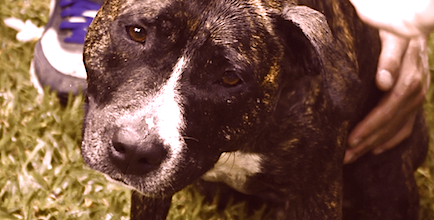Can Dogs Eat Cucumber? Everything You Need To Know.
Key Points: Cucumbers: those cool, crisp, and refreshing veggies that often find their way into our salads and sandwiches. But have you ever wondered if your canine companion can also enjoy the crunch of cucumbers? So, can dogs eat cucumber? Yes, cucumbers are generally safe and even healthy for dogs. Just like any treat, there…

- Yes, dogs can eat cucumbers, and they make a refreshing, low-calorie snack.
- With their high water content, fiber, and crunch, cucumbers help keep dogs hydrated, support digestion, and even freshen breath.
- Just be sure to slice them into bite-sized pieces to prevent choking, and avoid pickles, which contain salt and spices that can be harmful to dogs.
Cucumbers: those cool, crisp, and refreshing veggies that often find their way into our salads and sandwiches. But have you ever wondered if your canine companion can also enjoy the crunch of cucumbers?
So, can dogs eat cucumber? Yes, cucumbers are generally safe and even healthy for dogs. Just like any treat, there are some considerations to keep in mind when sharing this hydrating veggie with your furry friend.
In this guide, we’ll explore the nutritional benefits and considerations, and some fun ways of adding cucumbers to your dog’s diet.
- The Nutritional Value of Cucumbers
- The Benefits of Cucumbers for Dogs
- Safety Considerations When Feeding Cucumbers to Dogs
- Which Dogs Should Avoid Cucumbers?
- Could My Dog Be Allergic to Cucumbers?
- So, Can My Dog Eat Cucumbers?
- How Much Cucumber Should I Give My Dog?
- What if My Dog Ate Too Much Cucumber?
- How to Serve Cucumbers to Your Dog:
- What are Some Fun Cucumber Treats?
- Can Dogs Eat Cucumber Skins?
- Can Dogs Eat Pickles?

Don’t leave your pet’s safety to chance
Sign up for Petful recall alerts today.

The Nutritional Value of Cucumbers
Before we dive into how dogs can enjoy cucumbers, let’s take a moment to appreciate the nutritional profile of these green delights:
- Hydration: Cucumbers have a high water content, which can help keep your dog hydrated, especially during hot weather.
- Low in Calories: Cucumbers are a low-calorie treat, making them ideal for dogs that need to watch their weight. They provide a satisfying crunch without adding extra pounds.
- Dietary Fiber: Cucumbers are a good source of dietary fiber, promoting healthy digestion in dogs. The fiber can aid in regulating bowel movements.
- Vitamins and Minerals: While cucumbers are not as rich in vitamins and minerals as some other vegetables, they still provide some essential nutrients like vitamin K and potassium.
- Plaque Reducer: The crunchiness of cucumbers can help keep your dog’s teeth clean, reducing the risk of plaque buildup. However, cucumbers should not replace regular dental care.
The Benefits of Cucumbers for Dogs
Now, let’s explore the potential advantages of incorporating cucumbers into your dog’s diet:
- Hydration: The high water content in cucumbers can help keep your dog hydrated, especially in warm weather.
- Weight Management: Cucumbers are a fantastic low-calorie snack for dogs, making them an excellent choice for weight management.
- Digestive Health: The fiber in cucumbers can aid in maintaining regular bowel movements, benefiting dogs with gastrointestinal issues.
- Fresh Breath: Chewing on cucumber slices can help keep your dog’s teeth clean, contributing to better oral health.
- Low in Fat: Cucumbers are virtually fat-free, which is great for dogs on a low-fat diet.
Safety Considerations When Feeding Cucumbers to Dogs
While cucumbers are generally safe for dogs, here are some safety precautions to keep in mind:
- Moderation: As with any treat, cucumbers should be given in moderation and as part of your dog’s balanced diet. They should complement, not replace, regular meals.
- Size: Slice or chop cucumbers into manageable pieces to avoid choking hazards, especially for smaller dogs.
- Organic and Washed: If possible, choose organic cucumbers and wash them thoroughly to remove any potential pesticides or contaminants.
Which Dogs Should Avoid Cucumbers?
While cucumbers are safe for most dogs, there are some situations where caution is advised:
- Dogs with Food Allergies or Sensitivities: If your dog has known food allergies or sensitivities, introduce cucumbers carefully and monitor for any adverse reactions, such as skin issues or digestive upset.
- Dogs with Diabetes or Blood Sugar Issues: Monitor cucumber intake for dogs with diabetes or blood sugar regulation issues, as cucumbers contain natural sugars that can affect blood glucose levels.
- Dogs with Kidney Disease: Dogs with chronic kidney disease may need to restrict their intake of certain nutrients, including potassium, found in cucumbers. Consult your veterinarian for guidance.
- Dogs Prone to Pancreatitis: While cucumbers are not typically high in fat, any new food can potentially trigger pancreatitis in susceptible dogs. Introduce them gradually and observe for any adverse reactions.
Could My Dog Be Allergic to Cucumbers?
Yes, although it’s uncommon, dogs can be allergic or intolerant to any food, including cucumbers. Food allergies in dogs can manifest in various ways, ranging from gastrointestinal symptoms to skin-related issues.
Symptoms of a Cucumber Allergy or Intolerance in Dogs:
- Skin Issues: Itchiness, hives, redness, or rashes can be signs of an allergic reaction. The dog might scratch or lick excessively, especially around the paws, ears, or face.
- Digestive Upset: Vomiting or diarrhea might occur if a dog is intolerant or allergic to cucumbers.
- Facial Swelling: Swelling around the eyes, lips, ears, or throat can indicate an allergic reaction.
- Coughing or Difficulty Breathing: These could be signs of a severe allergic reaction, especially if there’s swelling in the throat.
- Chronic Ear Infections: If a dog repeatedly gets ear infections, it might be a sign of an underlying food allergy.
- Behavioral Changes: Some dogs might become lethargic, anxious, or exhibit other changes in behavior when experiencing discomfort or an allergic reaction.
What to Do if You Suspect an Allergy:
- Remove the Allergen: If you believe cucumbers are causing the issue, stop feeding them to your dog and avoid any treats or foods that contain them.
- Consult Your Veterinarian: If your dog shows symptoms of an allergic reaction, it’s essential to consult with a veterinarian. They can provide guidance on treating the immediate symptoms and discuss potential allergy tests or dietary changes.
- Allergy Testing: If the allergic reactions are recurring and the cause isn’t clear, your vet might recommend an allergy test to identify the specific allergens affecting your dog.
- Monitor for Cross-Contamination: Ensure that other foods or treats aren’t contaminated with cucumbers if you believe they’re causing an allergic reaction.
Remember, while it’s relatively rare for dogs to be allergic to cucumbers, it’s always good to introduce any new food gradually and monitor your dog for any adverse reactions.
So, Can My Dog Eat Cucumbers?
Yes, your dog can enjoy cucumbers as a cool and crispy treat when introduced responsibly and in moderation. Their high water content and low-calorie nature make them a refreshing addition to your dog’s diet. Be sure to wash them properly and adjust portion sizes based on your dog’s size.
How Much Cucumber Should I Give My Dog?
The appropriate amount of cucumber to give to your dog will depend on several factors, including the dog’s size, weight, age, overall health, and dietary needs. Here are some general portion guidelines to help you determine the right amount:
- Small Dogs (up to 20 pounds): 1 to 2 slices (1/4 inch thick each)
- Medium Dogs (20-60 pounds): 2 to 4 slices (1/4 inch thick each)
- Large Dogs (60-100 pounds): 4 to 6 slices (1/4 inch thick each)
- Extra-Large Dogs (over 100 pounds): Up to 8 slices (1/4 inch thick each)
Remember to wash cucumbers thoroughly and cut them into manageable, bite-sized pieces to avoid choking hazards, especially for smaller dogs. Based on your dog’s reaction, you can adjust the quantity accordingly. If your dog enjoys cucumbers and doesn’t exhibit any adverse reactions, you can incorporate them as a regular treat in moderation.
What if My Dog Ate Too Much Cucumber?
If a dog consumes too much cucumber, it may experience gastrointestinal upset due to the excess fiber and water content. Here are some symptoms that might indicate your dog has eaten too many cucumbers:
- Diarrhea: The high water and fiber content in cucumbers can lead to loose stools or diarrhea in dogs, especially if they consume a large quantity.
- Vomiting: Eating too much of any food, including cucumbers, can cause some dogs to vomit.
- Abdominal Discomfort: Overeating cucumbers can result in abdominal discomfort or bloating, leading to signs of pain or distress.
- Lethargy: A dog may feel unwell and exhibit lethargy or a lack of energy if it experiences digestive upset from overeating cucumbers.
If you notice any of these symptoms in your dog after it has eaten a large quantity of cucumbers, it is advisable to:
- Monitor: Keep a close eye on your dog’s symptoms and behavior. If symptoms are mild and the dog is otherwise behaving normally, monitoring may be all that is needed.
- Withhold Food: Temporarily withhold food to allow your dog’s stomach to settle, but ensure it has access to fresh water.
- Veterinary Attention: If your dog’s symptoms are severe, persistent, or worsening, or if you have any concerns about its health, seek immediate veterinary attention.
- Portion Control: In the future, ensure that cucumber treats are given in moderation, keeping in mind the size and dietary needs of your dog.
Remember that while cucumbers can be a healthy treat, they should be given as part of a balanced diet and not replace regular meals. Always introduce new foods gradually and monitor for any adverse reactions.
How to Serve Cucumbers to Your Dog:
- Fresh and Raw: The simplest way is often the best. Offer a few fresh cucumber slices as a cool and hydrating treat or mix them with your dog’s regular meal. Be sure to wash them first.
- Frozen Cucumbers: Freeze cucumber slices for a refreshing summer snack. Dogs often love the crunch and the cooling effect on a hot day.
- Cucumber and Yogurt: Create a dog-friendly cucumber and yogurt mix by blending cucumbers with plain yogurt. Pour it into your dog’s dish for a tasty, probiotic-rich treat.
- Cucumber-Infused Toys: Stuff some fresh cucumber slices into your dog’s favorite treat-dispensing toy for a fun and interactive experience.
- Homemade Cucumber Dog Treats: Explore dog-friendly recipes that incorporate cucumbers. From biscuits to muffins, there are plenty of creative options to try.
- Mixed with Regular Food: Sprinkle some fresh or mashed cucumber pieces on top of your dog’s regular food to add a burst of flavor and hydration.
What are Some Fun Cucumber Treats?
Creating fun cucumber treats for your dog can be an enjoyable activity, and it also allows you to provide your furry friend with some refreshing and healthy snacks. Here are some creative ideas for cucumber treats:
- Cucumber Popsicles:
- Puree cucumber and mix with a little water or low-sodium broth.
- Pour the mixture into ice cube trays and freeze.
- Offer these cucumber popsicles as a refreshing and hydrating treat on a hot day.
- Cucumber and Melon Balls:
- Use a melon baller to scoop out small balls of cucumber and melon (such as watermelon or cantaloupe).
- Mix the balls together for a colorful and hydrating treat.
- Cucumber Stuffed Kongs:
- Cut cucumbers into small pieces.
- Stuff a Kong or similar treat-dispensing toy with the cucumber pieces.
- Freeze the stuffed toy for a longer-lasting treat.
- Cucumber Doggy Smoothie:
- Blend cucumber, a little plain yogurt, and some blueberries or strawberries.
- Pour the smoothie into a bowl or freeze it in ice cube trays for a cool treat.
- Veggie Skewers:
- Create veggie skewers using cucumber slices, carrot sticks, and bell pepper pieces (remove any sharp points from the skewers).
- Ensure the pieces are a safe size for your dog to prevent choking.
- Cucumber and Cream Cheese Sandwiches:
- Slice cucumbers thinly.
- Spread a small amount of low-fat cream cheese between two cucumber slices to make mini sandwiches.
- Cucumber and Peanut Butter Bites:
- Cut cucumber into thick slices.
- Hollow out the center of each slice slightly.
- Fill the hollow with a small amount of dog-safe peanut butter.
- Cucumber Salad for Dogs:
- Mix together chopped cucumber, diced carrots, and cooked peas.
- Toss the veggies in a small amount of flaxseed oil for a healthy and refreshing salad.
- Herby Cucumber Bites:
- Mix finely chopped cucumber with chopped fresh parsley (parsley can help freshen breath).
- Add a little plain cooked quinoa or rice to bind the mixture.
- Form into small balls and serve as a tasty bite-sized treat.
Can Dogs Eat Cucumber Skins?
Yes, dogs can eat cucumber skins. In fact, the skin of a cucumber is where many of the vegetable’s nutrients, such as fiber and potassium, are concentrated. It can be beneficial for your dog’s digestion and overall health when consumed in moderation.
However, it’s essential to consider the following precautions when feeding cucumber skins to your dog:
- Wash Thoroughly: Ensure the cucumber is thoroughly washed to remove any pesticides, chemicals, or contaminants that might be present on the skin, especially if the cucumbers are not organic.
- Cut into Small Pieces: Cut the cucumber, including the skin, into small, bite-sized pieces to prevent choking, especially for small dogs.
- Introduce Gradually: As with any new food, introduce cucumber skins gradually and monitor your dog for any signs of gastrointestinal upset or allergic reactions.
- Moderation: Feed cucumber skins in moderation, as excessive consumption can lead to digestive issues due to the high fiber content.
Can Dogs Eat Pickles?
While dogs can safely eat cucumbers, it’s best to avoid feeding them pickles. Pickles are cucumbers that have been preserved in a brine of vinegar, salt, and sometimes sugar, often with various spices and seasonings added. Here are several reasons why pickles can be problematic for dogs:
- High Salt Content: Pickles contain a high level of salt, which can be harmful to dogs, potentially leading to increased thirst, urination, and risk of sodium ion poisoning.
- Spices and Seasonings: Many pickles contain spices, herbs, and other seasonings such as garlic and onions, which can be harmful and toxic to dogs.
- Vinegar: The vinegar used in the pickling process can cause gastrointestinal upset in some dogs, leading to symptoms like vomiting and diarrhea.
- Sugar: Some pickles are made with added sugar, which can contribute to obesity and dental issues and is particularly problematic for diabetic dogs.
Given these potential risks, it is safer to avoid giving pickles to your dog. If you wish to treat your dog with cucumber, opt for fresh, plain cucumber slices in moderation instead of pickles. If your dog has consumed a pickle, especially one with harmful additives, monitor for any signs of distress, and consult your veterinarian if you observe any adverse reactions or symptoms.
Frequently Asked Questions (FAQ)
Can dogs eat cucumbers with skin?
Yes, dogs can eat cucumbers with the skin, as it contains fiber and nutrients, but some dogs may have trouble digesting it. If your dog has a sensitive stomach, peeling the cucumber may help prevent digestive discomfort.
How many pieces of cucumber can a dog eat?
Small dogs can have a few thin slices, while larger dogs can eat up to half a cucumber, but it should only be an occasional treat. Feeding too much at once may cause digestive upset due to its high water and fiber content.
Do cucumbers clean dogs’ teeth?
While chewing on crunchy cucumber slices may help remove some plaque, they are not as effective as dental chews or regular tooth brushing. For better dental health, combine cucumber treats with proper dental care.
Do cucumbers help dogs lose weight?
Yes, cucumbers are low in calories and high in water content, making them a great low-calorie treat for overweight dogs. Replacing high-calorie snacks with cucumbers can help support a healthy weight-loss plan.
Curious about what other foods dogs can eat? Check out these related articles below:







